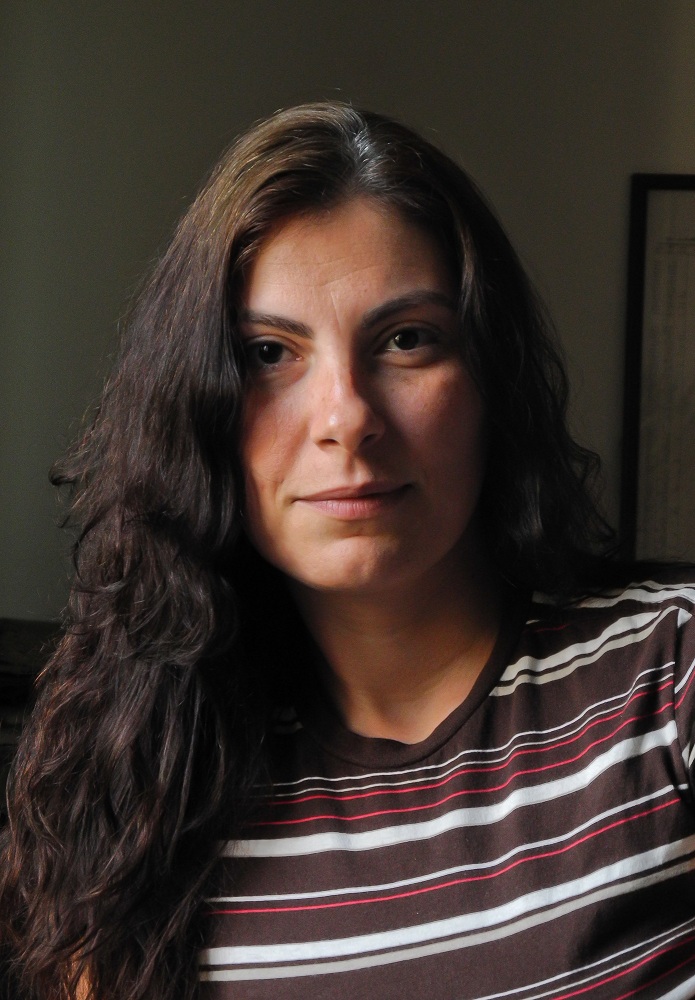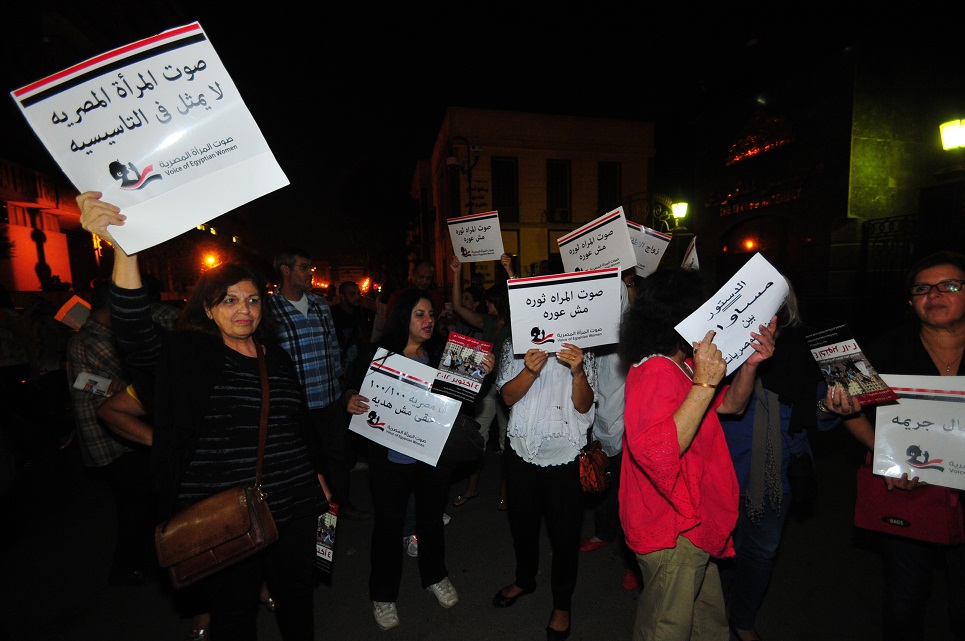A month ago, the MENA region witnessed the launch of She is Arab, the first platform dedicated to Arab women speakers in the world, becoming a new voice of Arab women. The campaign aspires to become a credible reference point for organisations on gender equality and women empowerment.
She is Arab is a passion venture co-founded by Noha Hefny and Samar Alshorafa. Daily News Egypt had interviewed borh Hefny and AlShorafa to learn more about the platform.
Can you introduce the platform to our readers?
She is Arab the first dedicated speakers’ platform for Arab women in the world with a mission to represent and develop Arab women speakers and thought leaders across every sector to highlight successful role models and success stories. It also aims to
reduce stereotypes about Arab women. We are both graduates of the American
University in Cairo class of 2001, which is how we know each other. We are
both married mothers of boys, residing in Dubai, UAE. We are committed to
human centric development, placing people at the heart of everything that we
do while delivering impact and driving positive change.
As social entrepreneurs, we are driven by passion and have a combined experience of more than 30 years in the fields of international development, humanitarian action, public policy, public affairs, and integrated marketing communications. We have both worked in leading global organisations in both the private and public sectors including the United Nations, International Finance Corporate, the European Commission’s Industrial Modernisation Programme for Egypt, HH Mohamed bin Rashid Al Maktoum Foundation, PepsiCo, and McKinsey & Company.
How did you come up with the platform’s idea?
We both share a common passion towards gender equality and women empowerment and wanted to create a platform that would become a credible reference point for the world on all issues relating to Arab women. We aspire to minimise silos and to have one platform created by Arab women for Arab women that represents their voice.
As social entrepreneurs, we created “She is Arab” to inspire and develop women, document success stories, create role models, drive leadership and participation, empowerment through exposure, visibility, professional development, mentorship, and networking. We aim to increase Arab women’s
representation in speaking platforms on the international stage and in the region more prominently, and to truly represent Arab women of all ages,
backgrounds, and sector specialisations. The idea has truly been in the works for several years and has matured into was
“She is Arab” is today, which presents a forward-looking online platform that leverages the power of technology to enhance
collaboration, learning, knowledge, and the exchange of experiences. She is Arab is a purpose driven, tech-business and stems from our commitment to increasing Arab women’s representation on speaking platforms around the world.
What services does the platform provide for women?
The platform will offer four distinct services; speaker bureau services to match Arab women with speaking opportunities; professional development services to prepare women through relevant raining and coaching services to become or improve their public speaking skills, and to build their thought leadership profiles; Advisory services to organisations on social impact and gender equality; a network that connects Arab women around the globe across multiple sectors and enables collaboration to increase knowledge on a variety of topics.
We are providing the tools to support Arab women on their journey of self-discovery as leaders and speakers, empowering them through the offered
services and tech-driven tools to introduce their achievements and success stories to the world.
What is the goal of the platform?
Our vision is to be the new voice of Arab women. Our mission is to represent and develop Arab women speakers and thought leaders in different sectors while addressing sustainable development goal five (Gender Equality) by driving gender balance in speaking events and creating role models to inspire the future generation. We are leveraging the power of communication and technology to do all of that and to amplify our efforts.
how many members does the platform have currently? And how many are you hoping to reach?
We have close to 100 registered speakers under review, 60 of them published on the platform, and approximately 200 network members in total. Our target
is to reach 5000 members by 2030, out of which 1000 are qualified Arab women speakers from around the world, to document their stories and achievements,
engage them in knowledge driven events and help them with their public speaking journeys. We hope to deliver impact through echoing their voices to
thousands of people and audiences around the world. We believe in the power of storytelling and aspire to echo and spread the stories of our network members from Egypt and from the rest of the region worldwide. We believe this will demonstrate the power of Arab women and to reduce stereotypes and misperceptions about what we are capable of achieving.
What is the five year strategy for the platform in Egypt?
Egypt is a strategic market for She is Arab. As an early stage start-up, our aspiration is to establish a physical presence in Egypt and to have a fully running operation offering all of our four services.. This is what we hope to achieve in the next five years. We are working proactively to develop local partnerships to help us achieve our goals in the shortest time possible. In the long run, we are also keen to expand our services if we can to women across various governorates in Egypt. We want to reach youth and economically unprivileged women, to offer training in communications, public speaking, leadership and other skills and to present their success stories to the world. We aspire to develop a fresh pipeline of young emerging Arab women thinkers and speakers including Egyptians across every sector who are able to represent the region internationally; while adding value and offering innovative solutions for key global and regional challenges.
How can you evaluate women’s economic empowerment in Egypt?
There have been great developments taking place in Egypt in recent years. The country’s appointment of eight women ministers, which represent 25% of
the Cabinet, handling strategic portfolios, is proof of the government’s commitment to ensure women are well represented in leadership roles in the
public sector. Major strategy announcements were made as part of Vision 2030 for Egypt, as well as constitutional law amendments that empower women such as being able to give Egyptian nationality to their children, or setting a quota of local council seats for women. The National Council for
Women has also been extremely proactive as a leader in these debates under the leadership of Maya Morsy. All of these developments over the years
are promising for women.
What are the countries that could be taken as a model in women empowerment in the MENA region?
There is great momentum across the region, with countries taking great strides towards achieving women empowerment, and likewise in Egypt. Some of the most prominent examples include, Saudi women gaining the right to drive and for those under the age of 21, the right to travel, apply for a passport, cross the Saudi border, register births, marriage, divorce or death, access basic education, healthcare, open businesses without a male guardian’s permission. Divorced women can retain custody of their children. Women could vote for the first time ever in municipal elections, enlist in the military, do physical exercise in the streets. Stadiums recently began letting women watch sports live. The number of women working in the private sector has soared 130% from 2013.
In Bahrain, Fawzia Zainal is the third Arab woman to head parliament
after the UAE and Syria. On average, women earn the same as men and that more
than 50 per cent of companies registered in Bahrain are now founded by
women.
In Kuwait, various efforts undertaken to activate UN Sustainable Development Goal 5 (SDG 5) and to allow women to take part in the public prosecution field in order to advance and become judges in the future. Currently, 57% of civil servants in Kuwait are women.
In Egypt for the first time 25% of the cabinet is represented by women through the appointment of eight ministers in 2018, while 15% of the
parliament is now made up of women. In Tunisia, two prominent women run for presidential elections this year.
In Jordan, government approved a five-year women’s economic empowerment action plan which aims to increase women’s labour force participation rate to 24% by 2025.
In the UAE, where our head office is based, several developments have taken place including, the approval of a law that guarantees equal pay for
men and women, a decree that stipulates that Emirati women must occupy 50% of the seats of the UAE’s Federal National Council, 27% of women
representation in cabinet (nineout of 32 ministers), and 30% of the diplomatic corps are currently female. The UAE has been seen as a regional leader in this domain by the World Economic Forum since 2016, and ranks
first regionally on achieving SDG five on gender equality. In 2012, the
government decision of mandatory presence of women on boards was the first of its kind in the region and the second globally.




